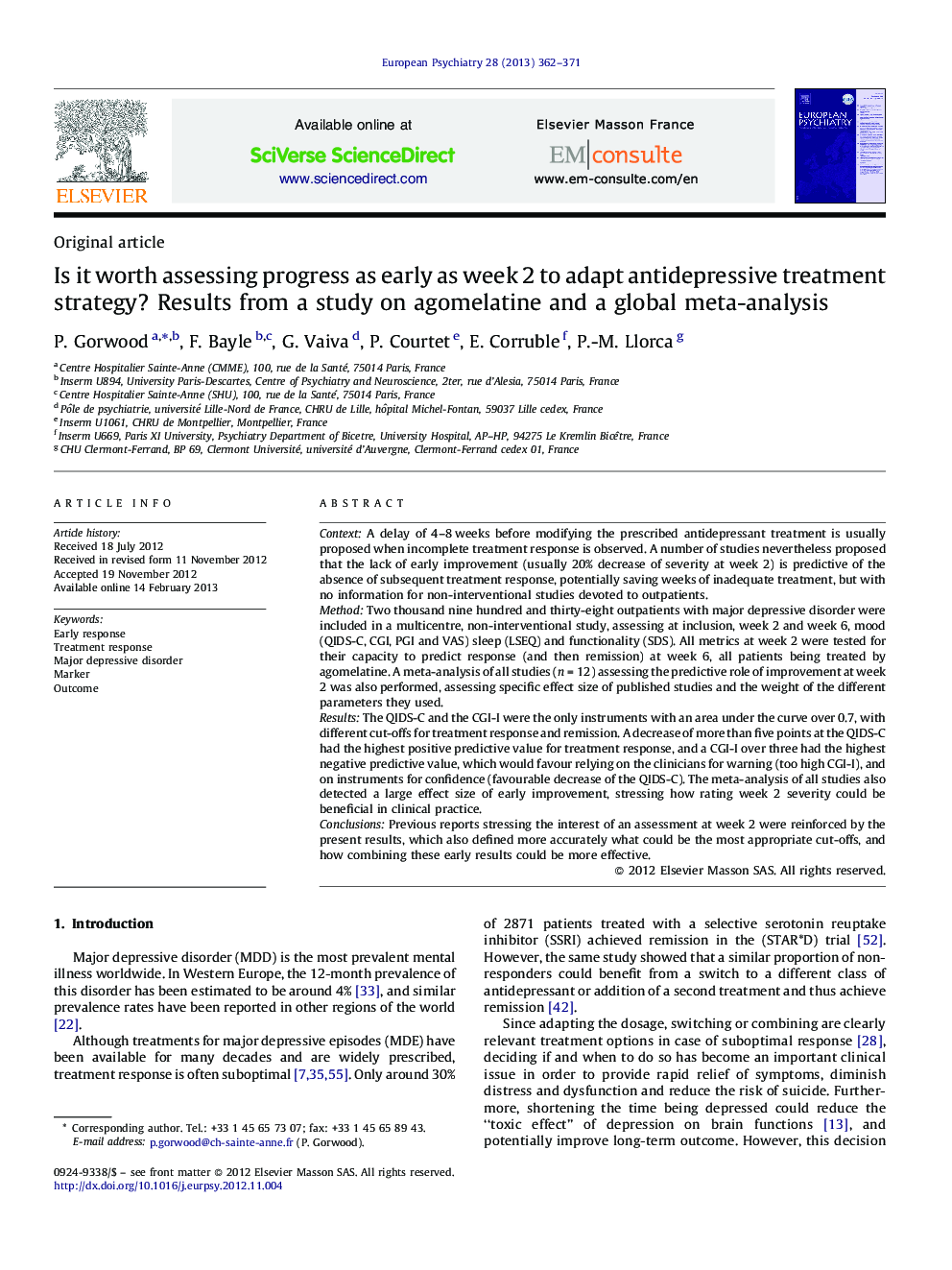| کد مقاله | کد نشریه | سال انتشار | مقاله انگلیسی | نسخه تمام متن |
|---|---|---|---|---|
| 4184310 | 1277304 | 2013 | 10 صفحه PDF | دانلود رایگان |

ContextA delay of 4–8 weeks before modifying the prescribed antidepressant treatment is usually proposed when incomplete treatment response is observed. A number of studies nevertheless proposed that the lack of early improvement (usually 20% decrease of severity at week 2) is predictive of the absence of subsequent treatment response, potentially saving weeks of inadequate treatment, but with no information for non-interventional studies devoted to outpatients.MethodTwo thousand nine hundred and thirty-eight outpatients with major depressive disorder were included in a multicentre, non-interventional study, assessing at inclusion, week 2 and week 6, mood (QIDS-C, CGI, PGI and VAS) sleep (LSEQ) and functionality (SDS). All metrics at week 2 were tested for their capacity to predict response (and then remission) at week 6, all patients being treated by agomelatine. A meta-analysis of all studies (n = 12) assessing the predictive role of improvement at week 2 was also performed, assessing specific effect size of published studies and the weight of the different parameters they used.ResultsThe QIDS-C and the CGI-I were the only instruments with an area under the curve over 0.7, with different cut-offs for treatment response and remission. A decrease of more than five points at the QIDS-C had the highest positive predictive value for treatment response, and a CGI-I over three had the highest negative predictive value, which would favour relying on the clinicians for warning (too high CGI-I), and on instruments for confidence (favourable decrease of the QIDS-C). The meta-analysis of all studies also detected a large effect size of early improvement, stressing how rating week 2 severity could be beneficial in clinical practice.ConclusionsPrevious reports stressing the interest of an assessment at week 2 were reinforced by the present results, which also defined more accurately what could be the most appropriate cut-offs, and how combining these early results could be more effective.
Journal: European Psychiatry - Volume 28, Issue 6, August 2013, Pages 362–371